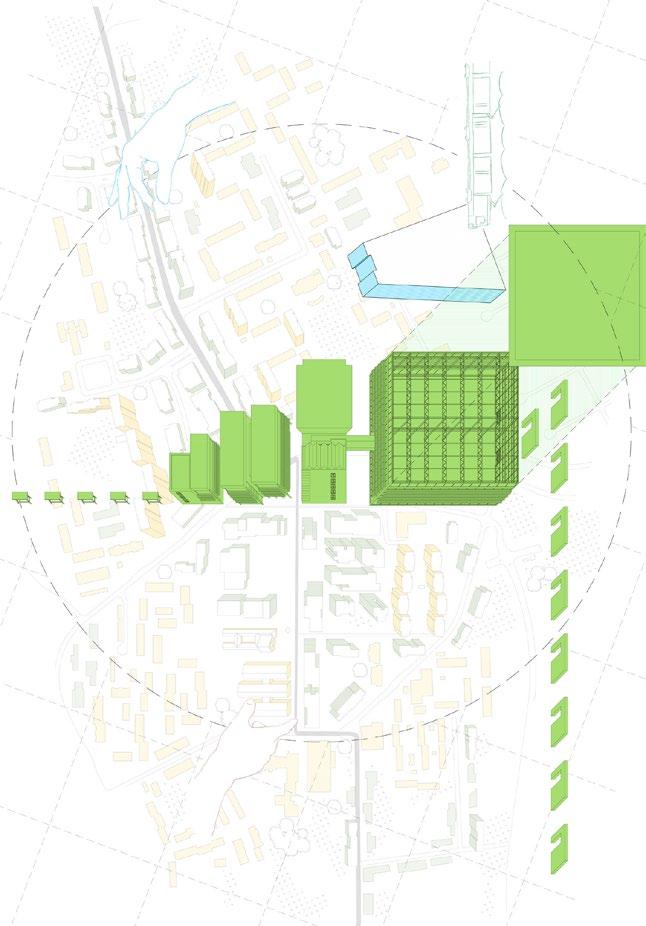
2 minute read
PRECARIOUS BRUSSELS
Thesis:
Calum Weir
Jonny Fisher industrial territory map #12 - Ninoofsepoortpark, Molenbeek, Brussels
Cities are, and always have been, economic opportunities but the inequalities within them is increasing at an unsustainable rate as every part of cities becomes commercialised. The economic and technological changes in cities have led to creation of a new social class, coined the Precariat by Guy standing, this underclass is created with
• Unstable labour - such as temp or zero hours contracts
• Reliance on money for security - no sick leave, holidays or cover and working from home
• Under represented - both in politics and in labour
Both exploitation of labour and cities have created a lot of social problems across our cities and as capitalism finds more ways to exploit more people then more people from a higher social standing will fall into the Precariat.
The proposal between the canal and the historic city centre. This spot has been left and neglected since the old canal dock wasn’t needed for manufacturing as the city pivoted away from this during the globalisation in the 60s and 70s. This spot between the three districts allows me to create building which can serve as an “Urban Breakroom” which stands to represent the workers in a highly used spot within the city as it sits between what is typically viewed today as domestic and labour. I have orientated it to use the canal as extra weight to spread out across the city and to enhance the route the canal creates within the city. The spaces around the building can be used mainly as place to meet and socialise but can also frame and service mass protests and demonstrations which would be visible to the city.
The “urban breakroom” part of this will include a food court, vertical street, accessible washroom facilities and places to go when they aren’t working. These immediate comforts all exist at ground floor level giving them the most immediate impact to everyone who needs them. Libraries are one of the few places where people can be without being sold something or having to pay to be there. This is what makes them valuable today. Drawing on the likes of the Pompidou centre to create a new kind of social space which seems to invert the tradition of a public building and goes against some of the urban tradition that is typical in the city. Along with this I want to incorporate a similar programme as the TUC in London to give people the legal representation they lack in their professions today.
Finally, the building will utilise engineered timber to create a sustainable building, as climate change also effects the most vulnerable in society, and to create a warm inviting feeling within the building while also giving it a lot of utility to adapt to the specific needs of a ever changing state of work in decades to come. This should create a proposal which can create greater security for workers within brussels.










